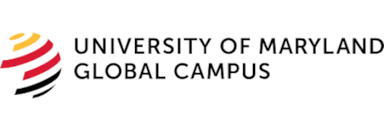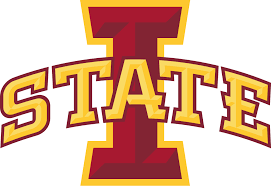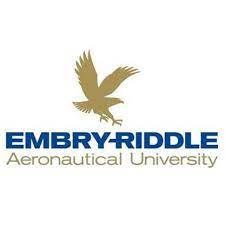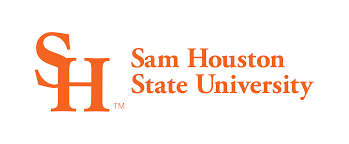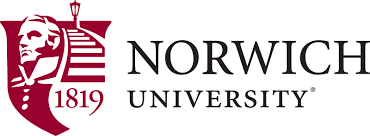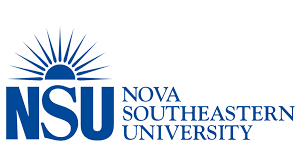Ready to find your ideal master's program?
www.mastersprogramsguide.com is an advertising-supported site. Featured or trusted partner programs and all school search, finder, or match results are for schools that compensate us. This compensation does not influence our school rankings, resource guides, or other editorially-independent information published on this site.
Do you want to learn how to protect data across all devices, including desktop and mobile devices? Are you interested in learning about how crime impacts internet security?
Perhaps you already have a bachelor’s degree in computer science and you want to take your education to the next level.
Whatever the case may be, an information assurance or information security master’s degree might be the right choice for you.
But what is it – and how do you find the best information assurance master’s degree for you? Let’s take a closer look.
See Also: 10 Best Master’s in Industrial Engineering
What is an Information Assurance Master’s Degree?
Information assurance is the practice of protecting information systems by mitigating risks and vulnerabilities. This can involve anything from security protocols to data encryption. With the rise of cyber-attacks and data breaches, Information Assurance has become a focal point for businesses and governments alike.
Investing in Information Assurance is akin to investing in a fortified castle to protect your information.
A Master’s degree in Information Assurance takes your security education to new heights. This degree is a comprehensive study of information security, cryptography, cyber law, and more.
A Master’s degree in Information Assurance is the peak of cybersecurity education. It will prepare you to be a leader in the field.
Why Choose an Online Degree Program?
Online learning is ideal for working professionals. Online students can access course materials when it’s most convenient. Often, graduate students are even able to pursue continuing education while working from mobile devices!
These programs are great for those with other responsibilties, like parents or even military students. You’ll take online courses that go far beyond what you covered in an undergraduate degree. Graduate students build their skills in information security and even gain real-world work experience so they can start working immediately.
Plus, tuition tends to be more affordable for an online degree than a traditional on-campus information technology degree. You’ll pay less per credit because you won’t be paying for room and board or transportation. This lower per credit rate often applies to both public and private schools. Many accept transfer credits with relative ease, too.
What Classes Will You Take in an Information Assurance Master’s Degree?
If you’re interested in information technology and securing the safety of information systems, an information assurance degree program is a smart choice. But what will you learn?
You’ll take some of the following courses:
- Information technology
- Data management systems
- Information security
- Management information systems
- Data Analytics
- Cybersecurity management
- Computer systems
- Software engineering
- Systems analysis
- Internet security on mobile devices
- Computer science
- Digital forensics/computer forensics
- Protecting data in the cybersecurity industry
- System vulnerabilities in wireless networks
- Security and privacy issues across various industries
- Privacy issues in network design
An information assurance degree can help build decision-making skills and leadership skills. Between core courses and elective courses, you’ll open up job opportunities in a variety of career paths. You’ll take online courses that hone your foundational knowledge far beyond what you learned in your undergraduate degree!
What Can You Do With an Information Assurance Degree?
If you’re thinking about higher education in the cybersecurity field, an information assurance program is the way to go. You’ll gain real-world expeirence in a variety of fields.
If you’re looking for a new career in the cybersecurity field, then completing an information assurance program is a smart choice. Cybersecurity professionals are needed everywhere, and there’s a massive earning potential.
New job opportunities might include:
- Information systems manager
- Information security analysts
- Information assurance specialists
- Computer forensics specialists
- Cyber operations specialists
This kind of degree can help you succeed in any kind of information systems or cybersecurity career!
Admission Requirements for an Information Assurance or Cybersecurity Master’s Degree
Ready to pursue graduate studies in information assurance? Let’s take a closer look at the application process.
Each information assurance program will differ in terms of what’s required. In general, you’ll need a bachelor’s degree in a related field. This might be in:
- Information technology
- Information security
- Computer science
Many schools allow graduate students to bring in transfer credits, so be sure to check. This can lower your final per credit tuition cost.
You will also need to furnish, in most cases, GRE test scores, transcripts, and letters of recommendation. Some information security programs also request an essay or an interview.
OUR RANKING CRITERIA
We have a time-tested four-part formula designed for ranking the best colleges in the nation. We’d love to share it with you.
We prioritize four major factors:
- Earnings Potential
- Affordability
- Student Satisfaction
- Selectivity
Reliable research and well-harvested data are the main ingredients in our recipe for success. We don’t make recommendations based on personal opinions, or financial incentives. Our revenue and content are separate. Sponsored schools have no impact on our rankings. The only way to make it onto one of our lists is to have an incredible academic program! If you want to know more, we encourage you to check out our methodology page.
Check out our ranking of the 10 Best Online Master’s in Information Assurance degrees!
Best Masters in Information Assurance Degrees
#1. UNIVERSITY OF MARYLAND Global Campus
MASTER OF SCIENCE IN INFORMATION TECHNOLOGY WITH AN INFORMATION ASSURANCE SPECIALIZATION
You’ll find a top masters in information assurance at the University of Maryland. Online programs are offered in an asynchronous format. Students can work on their coursework at their convenience. Classes have either biweekly or weekly deadlines. They are eight weeks in length.
The Master of Science in Information Technology with a specialization in Information Assurance has 36 credits. Students with prior graduate experience can bring in up to six credits. This degree is ideal for those who are working in the field.
This program also provides professional development. It helps students improve their project management skills. It can also prepare students for the following certification exams:
- CompTIA Security
- Systems Security Certified Practitioner
- Certified Information Systems Security Professional
Curses in this program include:
- Cryptology and Data Protection
- the Law, Regulation, and Ethics of Information Assurance
- Intrusion Detection and Intrusion Prevention
The program culminates in a capstone course. It considers best practices and emerging issues within the information assurance field.
Admission requirements include an application and proof of a bachelor’s degree.
#2. IOWA STATE UNIVERSITY
MASTER OF ENGINEERING OR MASTER OF SCIENCE IN INFORMATION ASSURANCE
Iowa State University was home to the world’s first electronic, digital computer. It also had the first moving tornado simulator. Its virtual reality lab also has the highest resolution in the world for immersive virtual experiences.
This masters information assurance degree is an asynchronous program. Students can view lectures at a day and time that they choose. They don’t have to log in at a specific time.
Iowa State has over 25 online master’s programs. There is both a Master of Engineering and a Master’s Degree in Information Assurance. Both programs have 30 credits.
This information assurance degree allows students to choose between a thesis and a non-thesis option. Non-thesis students decide between doing a capstone experience or a creative component. All students in the MS program must take a final oral exam.
The M.Engr. is a coursework-only information assurance degree program. Students must do six credits worth of research while enrolled.
Course options for these information security programs include:
- Ethical and Legal Issues in Computer Security
- Cryptography
- Forensics
- Systems Analysis
Graduates of these programs go on to work either for an information technology company or in government. These degrees are housed within the Iowa State University Information Assurance Center.
This center leads research and training on information assurance and computer security. This is done through partnerships with citizens, government, industry, and experts in the field. It is also a designated Center of Excellence in Information Assurance. That’s per the National Security Agency.
#3. FLORIDA INSTITUTE OF TECHNOLOGY
MASTER OF SCIENCE IN INFORMATION ASSURANCE AND CYBERSECURITY
You’ll find another top information assurance master’s degree at Florida tech. It is a school that is mindful of the technological advances made on the Space Coast in Florida. Florida Institute of Technology is on the edge of innovative study across its programs. Alumni of the university are well-known. They include CEOs of Fortune 500 companies, astronauts, and the first female four-star general in the United States Military.
The online experience provides students with the academic rigor they would experience on campus. This is through videos, interactive media, and discussions with faculty members and other students. These courses are offered in an asynchronous format. Students do not need to log in at certain times.
Students learn from experts in the field. Many of them have worked at companies like Raytheon Missile Systems, Xerox, Toyota, and Northrop Grumman.
Students must submit an online application and provide official transcripts. They are not required to submit the Graduate Record Examination and the Graduate Management Admissions Test.
There are six start dates offered throughout the year. Students take about two years for students to earn a Master’s Degree in Information Assurance and Cybersecurity. This program is in the Harris Institute of Assured Information. This is a center founded through a partnership with the Harris Corporation.
Students learn about forensics, biometric technology, and data mining.
FIT has accreditation from the Southern Association of Colleges and Schools Commission on Colleges. It is also an appointed National Center of Excellence in Cyber Defense Research.
Students take 11 classes. This includes a total of 33 credit hours. This includes classes like:
- Cryptography and Information Hiding
- Biometric Authentication Technologies
- Secure Data Communications and Networks
#4. EMBRY-RIDDLE AERONAUTICAL UNIVERSITY-WORLDWIDE
MASTER OF SCIENCE IN INFORMATION ASSURANCE
The Master’s Degree in Information Security and Assurance creates leaders within the field of information technology.
Students in this information assurance masters focus on safeguarding resources within a business or organizational setting. They learn how to recognize that the security of this data is crucial to success within their company. They are trained to strengthen their understanding of information systems. They understand the connections between cybercrime and the economy.
Embry-Riddle focuses specifically on three areas of the field:
- Enterprise
- Knowledge management
- Security assurance
This program is offered through the university’s College of Business. Students become both business- and technology-minded.
They can also focus their coursework by adding one of the following specializations:
- Protecting Business Intelligence
- Information Systems Security
- Information Assurance in a Global Context
This program also emphasizes the need for professionals to make decisions to succeed. Students become authorities in the field.
They must complete 30 credits. Classes include:
- Integrated Threat Warning and Attack Assessment for Enterprise Information Systems
- Global Information and Technology Management
- Assured Strategic Messaging: Keeping the Message Intact and Effective
#5. SAM HOUSTON STATE UNIVERSITY
ONLINE MASTER’S DEGREE IN INFORMATION ASSURANCE AND SECURITY
Sam Houston State University is the 12th-largest university in Texas. It is accredited by the Southern Association of Colleges and Schools Commission on Colleges. The mascot is the Bearkat. The school is home to Division I athletics.
Sam Houston State emphasizes excellence in academics and student success. This is apparent in its Master’s Degree in Information Assurance and Security. It helps students gain knowledge and practical skills that can be applied to the industry.
Students must finish 36 credits. Courses in this program include:
- Network and Cyber Security
- Business Continuity Management
- Database Security
#6. WESTERN GOVERNORS UNIVERSITY
ONLINE MASTER’S DEGREE IN CYBERSECURITY AND INFORMATION ASSURANCE
This master of science in information assurance is a typical master’s program. It is designed to be finished in two years. However, WGU follows a competency-based model. This means that students can take assessments of their skills to determine if they can have a course waived.
This model also stresses the importance of skills that can be applied in the real world. This is applied to the curriculum through assessments that students can take as soon as they feel that they can pass them.
The university also has a liberal transfer credit policy. To be admitted to WGU, students must complete the online application and submit their official transcripts.
Another interesting fact about WGU is that the average student loan debt of the university’s graduates was less than half of the national average. There are also several scholarships available to students.
For the online Master’s Degree in Cybersecurity and Information Assurance, most students finish their degree in six to 20 months.
The MS requires 30 competency units. It includes courses like:
- Forensics and Network Intrusion
- Secure Software Design
- Cybersecurity Architecture and Engineering
The last requirement of this program is the capstone project. Students must come up with a solution to an issue in the IT industry.
Students will also earn certifications to become an EC-Council Certified Ethical Hacker and an EC-Council Computer Hacking Forensic Investigator.
The curriculum matches up with the National Initiative for Cybersecurity Education. It was also created to meet guidelines set out by the United States Department of Homeland Security and the National Security Agency.
Graduates of this program have gone on to work in local and state government. They also work for Boeing and National Security Technologies. Overall, 100% of employers agreed that students were ready to take on their responsibilities. 97% of alumni recommend WGU.
#7. NORWICH UNIVERSITY
ONLINE MASTER’S DEGREE IN INFORMATION SECURITY & ASSURANCE
The Master’s Degree in Information Security & Assurance, while offered online, is one of the most in-depth information assurance masters degree options you will find.
It ensures that students can come to campus through its one-week residency. There, Norwich hosts forensic exercises and hackathons to allow students to apply what they’re learning in the classroom.
Students can specialize in this program by choosing from one of five concentrations. These are:
- Computer Forensic Investigation and Incident Response Team Management
- Critical Infrastructure Protection and Cyber Crime
- Cyber Law and International Perspectives on Cyberspace
- Project Management
- Vulnerability Management
The Project Management concentration is accredited by the PMI Global Accreditation Center for Project Management Education Programs. The MS has 36 credits. Each course is 11-weeks in length. This leads to an average completion time of 18 months. There are four start dates offered throughout the year. Each has its own application deadline.
#8. NATIONAL UNIVERSITY
MASTER’S DEGREE IN CYBERSECURITY AND INFORMATION ASSURANCE
National University has over 100 degree programs. Students can complete a number of these programs online. This includes the Master’s Degree in Cybersecurity and Information Assurance. It’s one of the best MS in information assurance programs you’ll find.
National also follows a unique schedule of classes. Students only take one course at a time. Each course, however, is only four weeks in length. This allows students to focus on one subject at a time. They can often finish their degrees faster. National also has year-round enrollment. Students can start on a monthly rotation.
As a veteran-founded institution, National prides itself on being a Yellow Ribbon School. It has a variety of military-friendly benefits. This includes a tuition discount for service members and their dependents.
Students can also personalize their curriculum. They can even choose a specialization. The program’s core ensures that students understand best practices in keeping cyberinfrastructure secure.
Students also learn how to address challenges to system structures. They learn about risk management and threat prevention. That’s in both a government- and business-oriented setting.
The options for this focus are:
- Ethical Hacking & Pen Testing
- Information Assurance & Security Policy
Courses in these specializations include:
- Red Teaming
- Ethical Hacking
- Certification and Accreditation
- Disaster Recovery/Business Continuity
Students must finish 58.5 credits to graduate. Students with prior graduate coursework can transfer up to 13.5 relevant work units.
#9. NOVA SOUTHEASTERN UNIVERSITY
MASTER’S DEGREE IN INFORMATION ASSURANCE & CYBERSECURITY
Nova Southeastern opened in 1964. Shortly thereafter, Nova launched its first distance education program in education.
Now, it has 50 master’s degree programs that can be finished all online. One of these is a top masters of information assurance – the Master’s Degree in Information Assurance & Cybersecurity.
This degree has 30 credit hours. It exists within Nova’s College of Engineering and Computing. This is an area of the profession that secures networks and conducts security analyses.
The program teaches students to utilize cryptographic algorithms to reinforce a digital infrastructure. They should be prepared to tackle cyber emergencies and disaster recovery planning.
Nova’s program has also been certified by the National Security Agency and the Department of Homeland Security. This designation means that the curriculum meets the standards for leaders in cybersecurity research and practice.
Full-time students can finish their degree in 12 to 14 months. Part-time students can earn theirs in 16 to 24 months. All students learn from faculty members who have doctorates and are experts in cybersecurity and information assurance.
Some courses students take include:
- Applied Cryptography
- Computer and Network Forensics
- Advanced Network Security
Classes range from 12- to 17-weeks in length.
#10. OKLAHOMA STATE UNIVERSITY
MASTER’s DEGREE IN INFORMATION ASSURANCE
Oklahoma State University offers a Master’s Degree in Information Assurance. Though the last master of science information assurance degrees on our list, it’s still an outstanding program.
It is housed within OSU’s Spears School of Business. Students benefit from a student-to-faculty ratio of 20:1. The institution itself has 24,649 students coming from over 100 countries and all 50 states.
Tthe Spears School is accredited by the Association to Advance Collegiate Schools of Business. It is considered a STEM-designated degree program. OSU has also been appointed as a Center for Academic Excellence in Information Assurance Education and Research. The curriculum for the MSIA is approved by the National Security Agency and the Department of Homeland Security.
It combines management and information assurance coursework. Students complete 32 to 33 credits to earn their degree. This includes courses like:
- the Upper Layers of Telecommunications Systems
- Scripting Essentials
- Advanced System Certification and Accreditation
OTHER NOTABLE PROGRAMS
#11. Carnegie Mellon University
Location: Pittsburgh, PA
Degree: Master of Science in Information Security & Assurance
Net Price: $27,055
#12. Davenport University
Location: Grand Rapids, MI
Degree: Master’s Program in Information Assurance and Cyber Security
Net Price: $17,160
#13. Liberty University
Location: Philadelphia, PA
Degree: Online Master’s Program in Information Systems with an Information Assurance Specialization
Net Price: $27,432
#14. Hampton University
Location: Hampton, VA
Degree: Master’s Program in Cyber Security
Net Price: $24,605
#15. University of Detroit Mercy
Location: Detroit, MI
Degree: Information Assurance Master’s Program With a Cybersecurity Major
Net Price: $32,300

